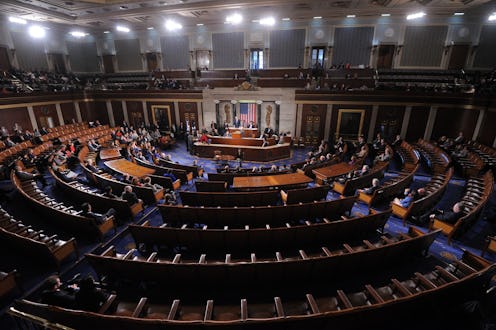News
How To Find The Electors In Your State
If you've done your research into the Electoral College system and you want to know who the electors are in your state, the good news is that there's a way to do that. The bad news is that you'll have to wait until after the election to find out. Each state releases its list of electors who cast their votes on behalf of the state, but they only do it when the electors convene — well after Election Day.
Each party fielding a candidate nominates the same number of electors as the state has electoral votes. In 2012, for example, the lists of electors for Michigan included 16 electors for the Democratic Party, the Republican Party, the U.S. Taxpayers Party of Michigan, the Green Party, and the Natural Law Party of Michigan. There are also a number of write-in candidates, each of whom had their own set of electors as well.
There aren't any specific qualifications needed to become an elector, so the state parties generally choose people who are active within the party, sometimes even state elected officials or people who have a close personal or professional connection with the presidential candidate. The electors could technically cast their vote for a person besides their party's candidate (although not without retribution in all cases), so the parties want to choose the most trustworthy people possible as their electors.
Although there are no guidelines for who can be an elector, there are laws about who can't be one. No members of Congress can be electors, nor can high-ranking United States officials "in a position of trust or profit," or state officials who have taken part in a rebellion against the U.S. While this last one might not seem terribly relevant any more, it was very important in the period immediately after the Civil War.
The electors convene in December, on the Monday after the second Wednesday in the month (yes, really), to officially cast their votes. This process, a remnant of a time when travel across the country took much longer and was much more difficult, is largely ceremonial at this point. Nowadays, of course, we get the results in real time, and don't need to wait for our state's electors to hand over their votes.
After that, each state will release its certificate of ascertainment, listing all of the electors for each party. You may not recognize any of the names on the list, but then you'll finally know who exactly you entrusted with your one and only presidential vote.
